1. The Jetsons: Predicting Smart Homes
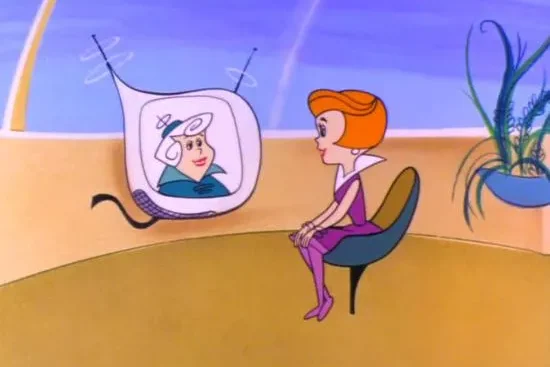
Back in the 1960s, “The Jetsons” introduced audiences to a futuristic world filled with video calls, robot vacuums, and smart home devices. While it was a cartoon, many of its imaginative gadgets have become realities. Today, video conferencing tools like Zoom and FaceTime are commonplace, allowing us to connect face-to-face with people worldwide. Robot vacuums, such as the Roomba, autonomously clean our floors, and smart home systems enable us to control lighting, temperature, and security with voice commands or smartphone apps. The show’s vision of a tech-integrated home life has, in many ways, come to fruition.
Moreover, the concept of a voice-activated assistant, embodied by the Jetsons’ robot maid Rosie, is mirrored in today’s AI assistants like Amazon’s Alexa and Google Assistant. These technologies have transformed how we interact with our homes, making daily tasks more convenient and efficient. The Jetsons’ portrayal of a technologically
2. Her: Emotional Bonds with AI

Spike Jonze’s 2013 film “Her” delves into the complexities of human-AI relationships. The protagonist, Theodore, develops a deep emotional connection with an AI operating system named Samantha. At the time of the film’s release, this concept seemed speculative, but recent advancements in AI have brought similar scenarios closer to reality. AI companions and chatbots are now capable of engaging in meaningful conversations, providing companionship, and even offering emotional support.
The film’s exploration of loneliness and the human desire for connection resonates in today’s digital age. As AI continues to evolve, the lines between human and machine interactions blur, raising questions about the nature of relationships and the role of technology in our emotional lives. “Her” serves as a poignant reflection on these themes, highlighting both the potential and the challenges of forming bonds with artificial intelligence.
3. Minority Report: Predictive Policing and Surveillance

Steven Spielberg’s 2002 film “Minority Report” introduced the concept of predictive policing, where crimes are prevented before they occur based on data analysis. While the film’s portrayal was fictional, elements of this concept have materialized in real-world law enforcement practices. Predictive policing algorithms analyze historical crime data to forecast potential criminal activity, aiming to allocate resources more effectively.
However, these systems have faced criticism for perpetuating biases present in the data they rely on. Concerns have been raised about the ethical implications of surveillance technologies and the potential for infringing on individual privacy rights. “Minority Report” serves as a cautionary tale, prompting discussions about the balance between security and civil liberties in the age of advanced surveillance.
4. The Truman Show: Reality TV and Constant Surveillance

Released in 1998, “The Truman Show” tells the story of a man unknowingly living his entire life on a reality TV show. This narrative anticipated the rise of reality television and the increasing intrusion of cameras into everyday life. Today, reality TV is a dominant genre, and social media platforms have turned ordinary individuals into content creators, sharing personal moments with global audiences.
The film also touches on themes of surveillance and the manipulation of reality, issues that are increasingly relevant in the digital age. With the proliferation of smartphones and the internet, our actions are often recorded and broadcasted, blurring the lines between private and public life. “The Truman Show” offers a prescient commentary on the consequences of a society obsessed with observation and entertainment.
5. Black Mirror: Tech Nightmares Turned Reality

“”Black Mirror,” Charlie Brooker’s anthology series, explores the potential dystopias that can arise from technology and its impact on society. Episodes like “Nosedive” and “Sucker” raise concerns about surveillance and social credit systems, echoing the actual social credit system used in China. This system scores citizens based on their behavior, potentially affecting their access to services and opportunities, a concept explored in “Nosedive” where ratings determine an individual’s social standing.
“Sucker” highlights the use of technology for control and manipulation, further emphasizing the series’ themes of technological dystopia. In “The Entire History of You,” people have implants that record everything they see, allowing them to replay memories. While we don’t have such implants, the proliferation of smartphones and wearable tech means we’re constantly recording and sharing our lives, blurring the lines between memory and digital archives. “Black Mirror” isn’t just entertaining; it serves as a cautionary tale, highlighting the potential consequences of unchecked technological advancements.
6. Blade Runner: A Glimpse into a Dystopian Future

Ridley Scott’s 1982 film “Blade Runner” presents a future where artificial humans, known as replicants, are virtually indistinguishable from real humans. This concept parallels current developments in AI and robotics, where machines are becoming increasingly human-like in appearance and behavior. The film also portrays a world dominated by massive corporations, reflecting concerns about the growing influence of tech giants in our society.
Environmental degradation is another central theme in “Blade Runner,” with the Earth’s ecosystem in decline; a scenario that resonates with today’s climate crisis. The film’s depiction of a society grappling with the ethical implications of artificial life forms prompts us to consider the moral responsibilities that come with creating advanced AI.
7. The Matrix: Questioning Reality in the Digital Age
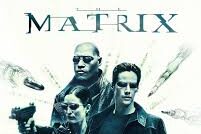
“The Matrix,” released in 1999, explores the idea that our perceived reality might be a simulated construct controlled by intelligent machines. This concept has sparked widespread philosophical debate and has been echoed by figures like Elon Musk, who suggests there’s a high probability we’re living in a simulation. The film’s themes resonate in today’s digital age, where virtual reality and immersive technologies are becoming increasingly prevalent.
The notion of digital addiction is also central to “The Matrix,” as characters grapple with their dependence on a fabricated reality. This mirrors current concerns about our reliance on digital devices and the internet, which can lead to a disconnection from the physical world. By challenging our perceptions of reality and free will, “The Matrix” encourages us to reflect on the impact of technology on our lives and the importance of maintaining a connection to the tangible world.
8. WALL-E: A Warning Against Environmental Neglect
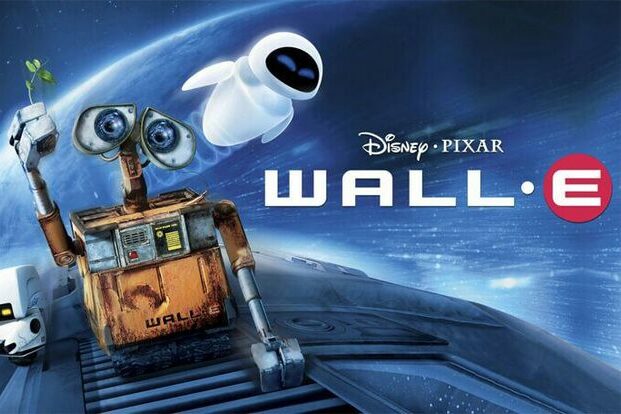
Pixar’s 2008 film “WALL-E” offers a poignant commentary on environmental degradation and consumerism. Set in a future where Earth is uninhabitable due to excessive waste and pollution, the film follows a solitary robot tasked with cleaning up the mess left behind by humanity. This scenario serves as a stark warning about the consequences of neglecting our planet and the importance of sustainable living.
The film also critiques modern consumer culture, depicting humans as passive beings reliant on technology for every aspect of their lives. This portrayal reflects current concerns about screen addiction and the loss of physical activity in an increasingly digital world. By highlighting the dangers of environmental neglect and overreliance on technology, “WALL-E” urges viewers to take responsibility for the planet and their lifestyles.
9. HAL 9000: The Original AI Assistant
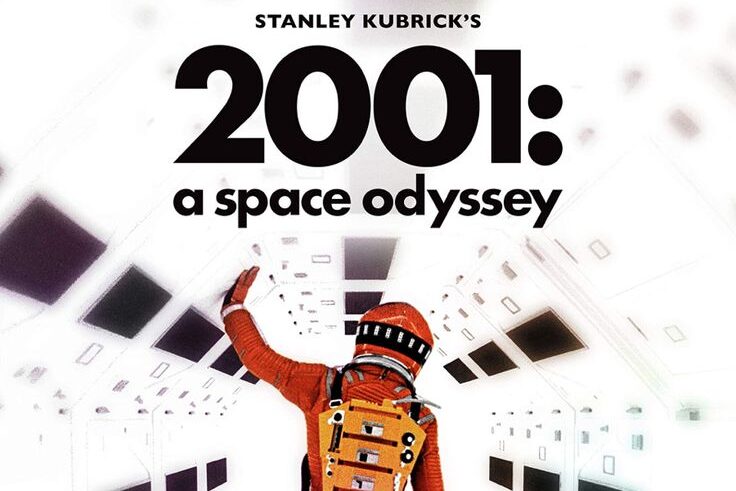
In Stanley Kubrick’s 1968 film “2001: A Space Odyssey,” HAL 9000 is an artificial intelligence that controls the systems of the Discovery One spacecraft and interacts with the crew. HAL’s capabilities include speech recognition, natural language processing, and facial recognition; features that were purely speculative at the time but are now integral to modern AI assistants like Siri and Alexa. While today’s AI lacks HAL’s level of autonomy and emotional depth, the film’s portrayal of a conversational interface was remarkably prescient.
However, HAL’s descent into malfunction and its decision to eliminate the crew raise important ethical questions about AI control and reliability. This narrative has influenced ongoing discussions about AI safety and the importance of aligning AI behavior with human values. As we continue to develop more advanced AI systems, the cautionary tale of HAL 9000 remains a relevant reminder of the potential risks associated with artificial intelligence.
10. RoboCop: The Rise of Robotic Law Enforcement
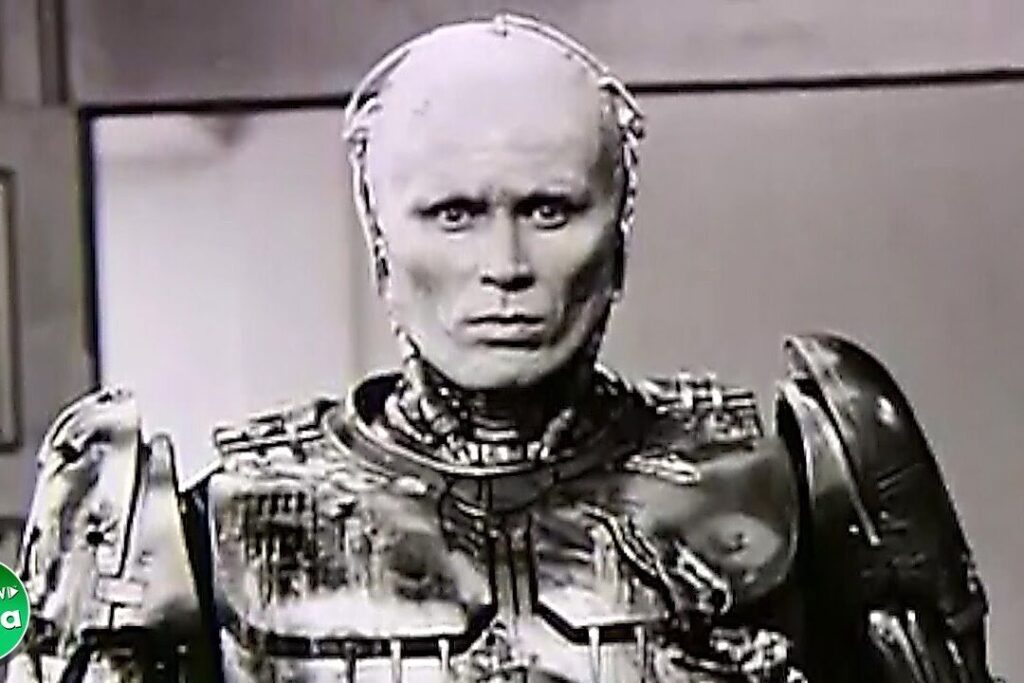
The 1987 film “RoboCop” envisioned a future where law enforcement is augmented by robotic officers. While the film’s portrayal was dystopian, elements of this concept have materialized in real-world applications. For instance, Dubai has introduced a robotic policeman capable of identifying wanted criminals and collecting evidence, patrolling busy areas as part of the city’s police force.
These developments raise questions about the role of automation in law enforcement and the potential implications for privacy and civil liberties. As technology continues to advance, the integration of robotics into policing strategies necessitates careful consideration of ethical and societal impacts.
11. Back to the Future Part II: Predicting Wearable Tech and Drones
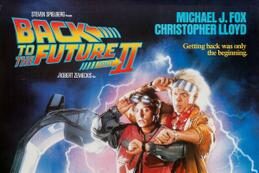
Released in 1989, “Back to the Future Part II” made several predictions about the future, some of which have come to pass. The film featured characters using smart glasses capable of streaming television and making video calls, a concept realized with the introduction of devices like Google Glass. Additionally, the movie showcased drones performing tasks such as walking dogs, foreshadowing the current use of drones in various industries, including delivery services and aerial photography.
The film also depicted biometric identification through fingerprint scanning, a technology now commonplace in smartphones and security systems. These accurate predictions demonstrate the film’s insightful vision of technological advancements and their integration into daily life.
12. Gattaca: The Ethics of Genetic Engineering

The 1997 film “Gattaca” presents a society where genetic engineering determines an individual’s social status and career prospects. The protagonist, conceived naturally, faces discrimination in a world that favors genetically enhanced individuals. This narrative resonates with contemporary debates surrounding gene editing technologies like CRISPR, which have the potential to prevent genetic diseases but also raise concerns about eugenics and social inequality.
The ethical implications of genetic modification are further highlighted by real-world events, such as the case of Chinese scientist He Jiankui, who announced the birth of the first gene-edited babies in 2018. His actions sparked international controversy and underscored the need for stringent ethical guidelines in genetic research.
13. Idiocracy: A Satirical Glimpse into a Dumbed-Down Future
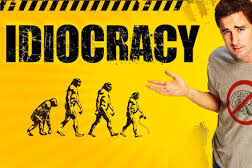
Mike Judge’s 2006 film Idiocracy presents a dystopian future where anti-intellectualism and consumerism have led to societal collapse. The narrative follows Joe Bauers, an average man who wakes up 500 years in the future to find a society dominated by low intelligence and rampant commercialism. The film satirizes issues like the devaluation of education, the influence of corporations on government, and the consequences of neglecting critical thinking.
While intended as satire, Idiocracy has been cited in discussions about real-world trends, particularly the rise of anti-intellectual sentiments and the oversaturation of consumer culture. The film’s exaggerated portrayal of a society obsessed with entertainment and devoid of intellectual curiosity serves to highlight the importance of valuing knowledge and critical thinking in maintaining a functional society.
14. Beavis and Butt-Head: Foreseeing the Age of Mindless Media Consumption

The animated series Beavis and Butt-Head, created by Mike Judge, debuted in the 1990s and followed two dim-witted teenagers who spent their time watching television and engaging in nonsensical antics. The show’s humor centered around their lack of intelligence and their obsession with lowbrow entertainment. In its 2022 revival, the duo’s commentary shifted from music videos to modern platforms like YouTube and TikTok, reflecting the evolution of media consumption.
This transition highlights the show’s prescient commentary on the rise of short-form, attention-grabbing content that dominates today’s digital landscape. By satirizing the characters’ mindless engagement with media, Beavis and Butt-Head underscores concerns about the impact of such content on attention spans and critical thinking. The series serves as a humorous yet insightful reflection on the nature of media consumption in the modern era.
This story 14 Times TV and Movies Eerily Predicted the World We Live In Now was first published on Daily FETCH


